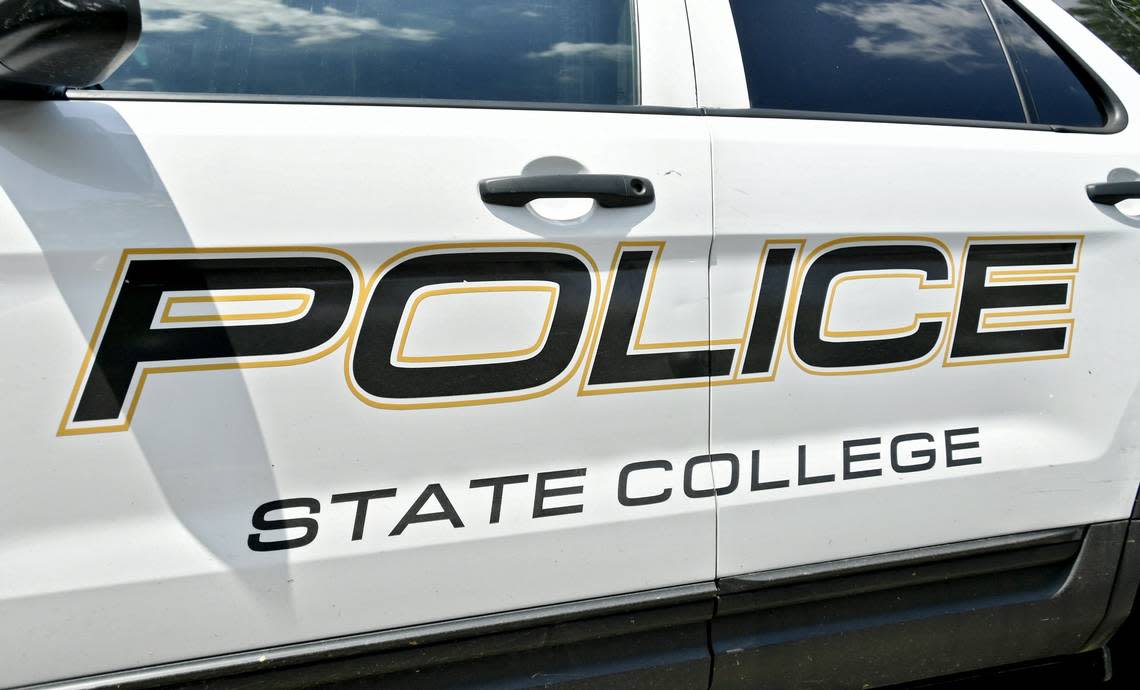PA appeals court upholds reinstatement for State College cop fired for misconduct

A statewide appeals court affirmed Friday the reinstatement of a fired State College police officer, a ruling that clears a path for him to return to a department that’s fought for years to keep him off the force.
The state Commonwealth Court’s ruling marked the borough’s third loss in the case. It was not immediately known if it planned to appeal and mount a fourth attempt; a spokesperson did not respond by Tuesday afternoon.
The 17-page ruling, however, was a victory for ex-State College police officer Joseph Scharf. He argued his firing was improper because the borough violated his due process rights by failing to follow its own regulations.
Messages left with Scharf’s attorney were not returned as of Tuesday. The State College Police Association — the union that represents the police department’s rank-and-file officers — declined comment Tuesday.
It’s unclear if or when Scharf will again don a State College police uniform. It could be the return of an officer described through extensive litigation as anything but exemplary.
Arbitrator Kathleen Jones Spilker — who ordered Scharf’s reinstatement — did not dispute the allegations against him after listening to at least three days of testimony.
She wrote in a November 2021 opinion it was understandable for borough police Chief John Gardner to recommend Scharf be fired.
“A reasonable person in the place of an arbitrator could justifiably recoil in disgust and horror at his admitted conduct,” Spilker wrote. “One has but to put oneself in the place of an innocent bystander who may have been injured or killed because of the grievant’s hijinks. He was pursuing cowboy justice, without proper regard for the possible consequences.”
Scharf was fired in December 2020 after an internal investigation into three allegations of misconduct.
In one incident, Scharf drove 87 mph in a 25 mph zone and passed a civilian vehicle at 72 mph while in pursuit of a speeding driver. The driver did not even realize a police officer was attempting to catch up to him.
In another, he failed to report a high-speed pursuit until three days after it happened, despite being told by two detectives to make a timely report.
Borough leadership found the third to be the most serious, one that warranted termination on its own. While on bicycle patrol, Scharf improperly deployed pepper spray into the driver’s side window of a moving vehicle during what should have been a routine traffic stop for a headlight violation.
Scharf’s conduct, the borough argued, exhibited a persistent tendency to act on his own, a disregard of police rules and training, proceeding on his own an inflated sense of urgency.
An internal affairs board — made up of four officers of different ranks and a division commander — found Scharf violated 10 department policies during the three incidents. It recommended a five-day suspension and a written reprimand.
The department’s top officer didn’t buy it. For the first time in his career, Gardner recommended one of his officers be fired.
The board’s recommended discipline, Gardner said, would not “prove effective in bringing about the positive change in performance and behavior that is required.” Borough Manager Tom Fountaine signed off on Scharf’s firing.
“No one wants to get criminals or bad guys off the street any more than I do, but there’s a right way and a proper way to do it. And oftentimes the end doesn’t always justify the means, and I think that’s the perfect illustration of this point here,” Gardner testified during an arbitration hearing. “I applaud him for his aggressive nature in how he wanted to pursue his job, but sometimes you have to take a step back and look at what am I doing, what am I trying to accomplish here and am I going to make things better or am I going to make them worse by my actions.”
But Scharf argued Gardner violated department policy by considering other incidents beyond the three that led to an internal investigation. Spilker agreed, finding his termination was not supported by just cause.
She rescinded his termination and ordered a five-day suspension. As part of his reinstatement, Scharf was ordered to undergo “rigorous retraining” to curb his “rogue, lone wolf tendencies.”
She described it as a “last chance agreement,” warning that “any repetition of the conduct and violations seen in this case” would result in immediate termination without recourse.
The borough sought to have Spilker’s ruling overturned, but Centre County Judge Brian Marshall upheld the ruling. Spilker, he wrote, neither exceeded her authority nor ordered the borough to violate public policy.
“While the mandatory reinstatement of a police officer that has been found by both the Borough of State College and the Arbitrator herself to be a danger to public safety and a threat to the citizens of Pennsylvania is certainly repugnant to public policy, this Court is constrained to follow the Pennsylvania Supreme Court’s determination that such a result is in fact the intention of the legislature,” Marshall wrote in his eight-page ruling.
Scharf was employed by the Johnstown City Police Department. It was not immediately known Friday if he still worked for the department.
He testified during an arbitration hearing he would “love to go back” to State College.
“State College is a place, you know, near and dear to my heart. I really enjoy policing in that community. It is a great place to raise a family. It is a well paying job,” Scharf testified. “I feel like I can make a tangible difference in the community. I live in our jurisdiction. It is something that I take seriously, as far as keeping this community safe.”


